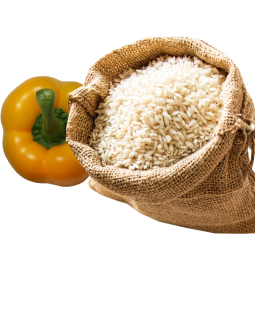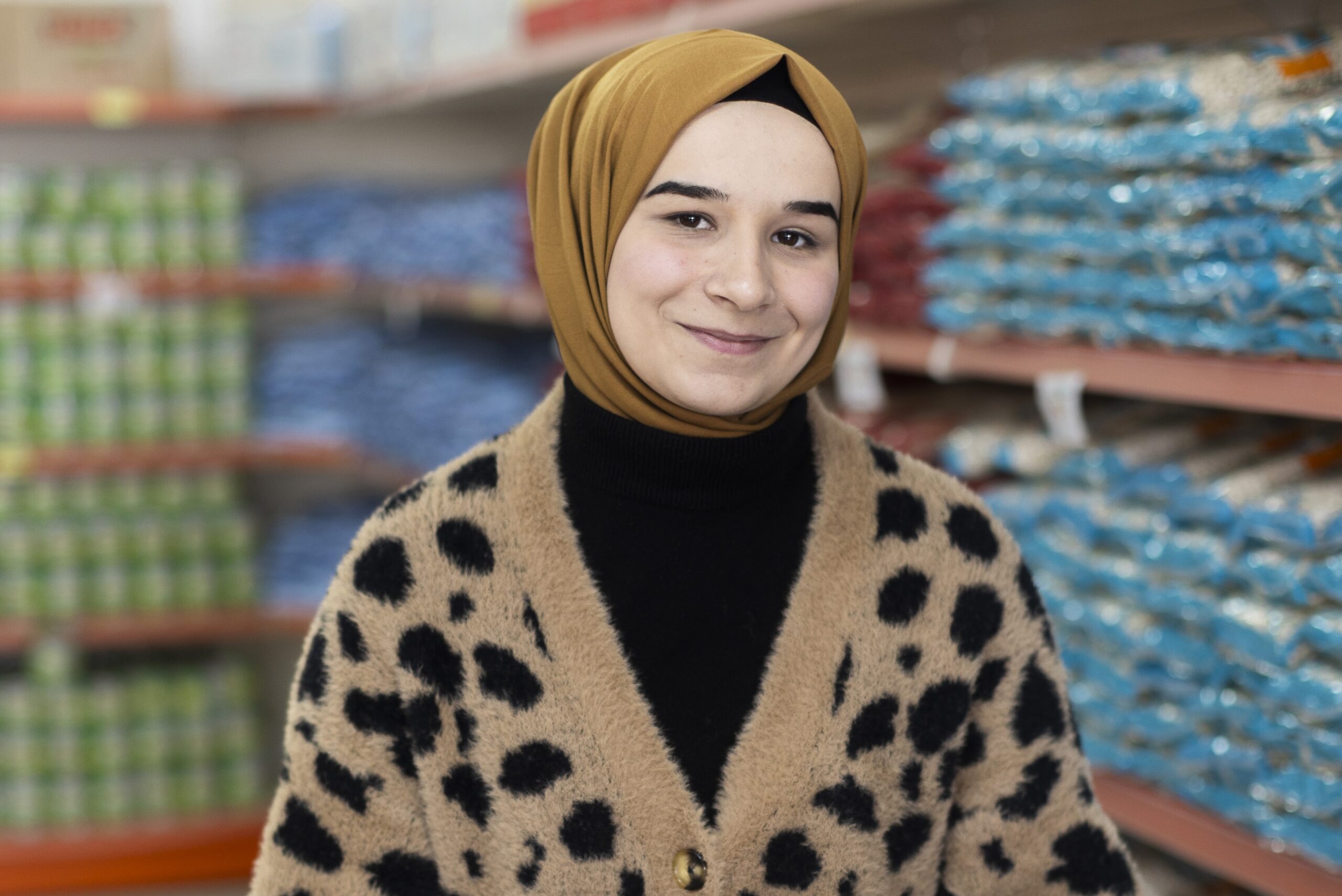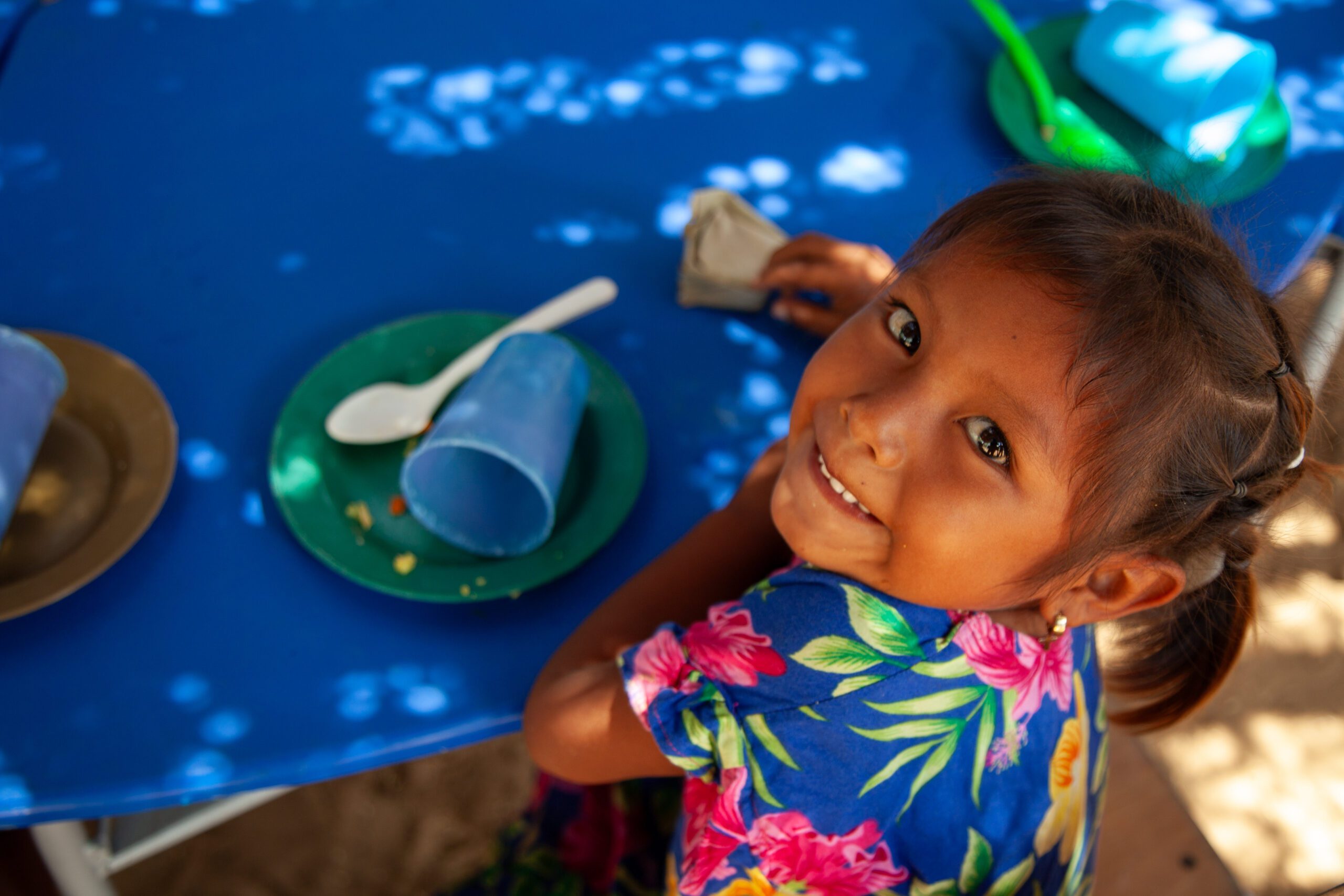Seeing the corn flour in her weekly food basket, Milagros Contreras starts thinking about the Venezuelan-style arepas — stuffed corn cakes — she’ll be making later that day. She runs a tiny restaurant out of her home called Sabor Zuliano (“Zulian Flavor”), an homage to her home state of Zulia, Venezuela.
“Colombians have their own style of arepa, but it’s not as good as Venezuelan style,” she giggles. “But Venezuelans and Colombians alike come to eat my food.”
Contreras is in the small city Riohacha, sitting in a patio at La Guajira Food Bank, a member of ABACO, the Colombian food banking network. Staff start filling her basket based on what she prepares at home: corn flour, oil, pasta, lentils and bolis, fruit popsicles.
“The corn flour and oil we get from the food bank allows me to earn more from my small business. Having another source of income in the family has improved all our lives,” she says.
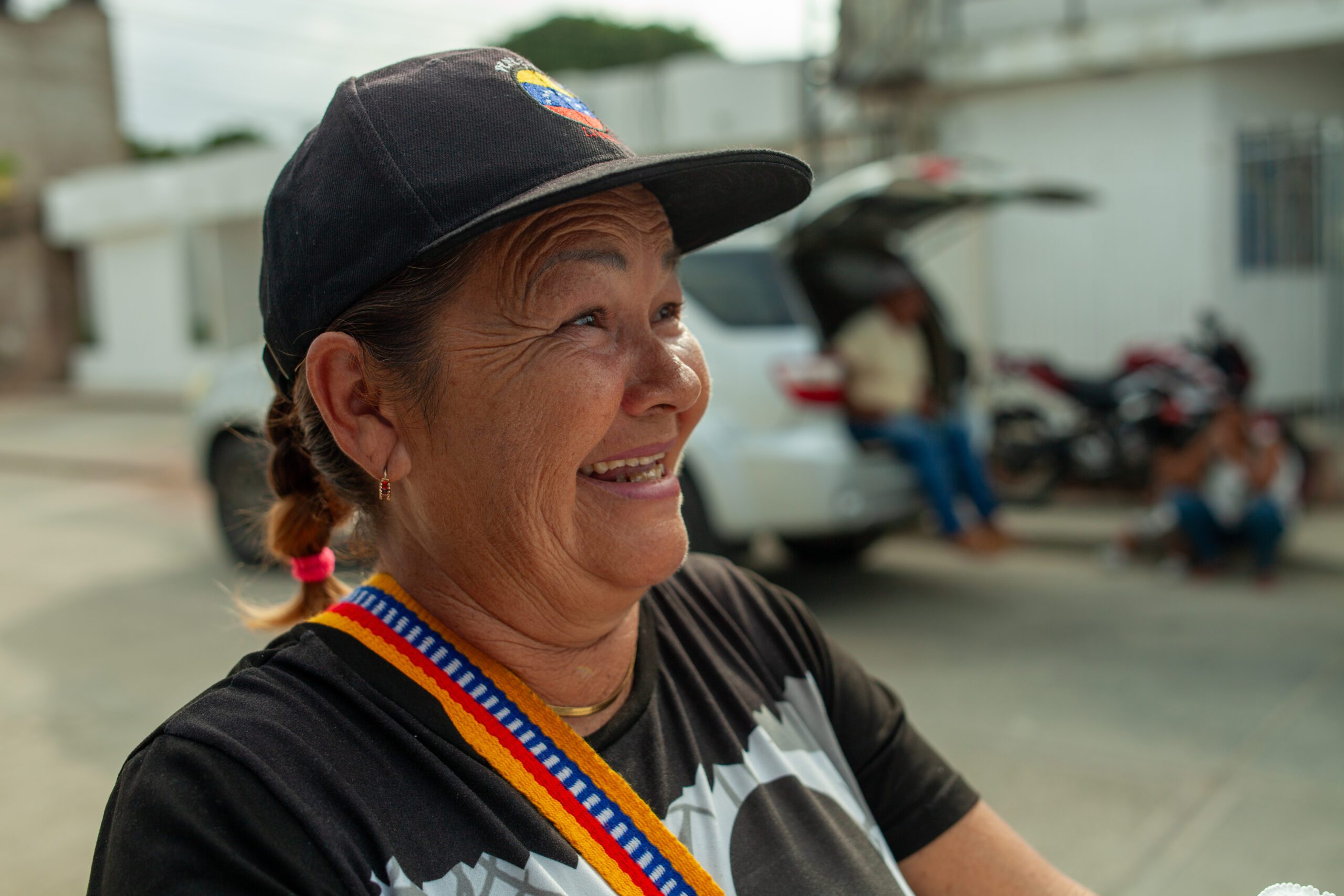
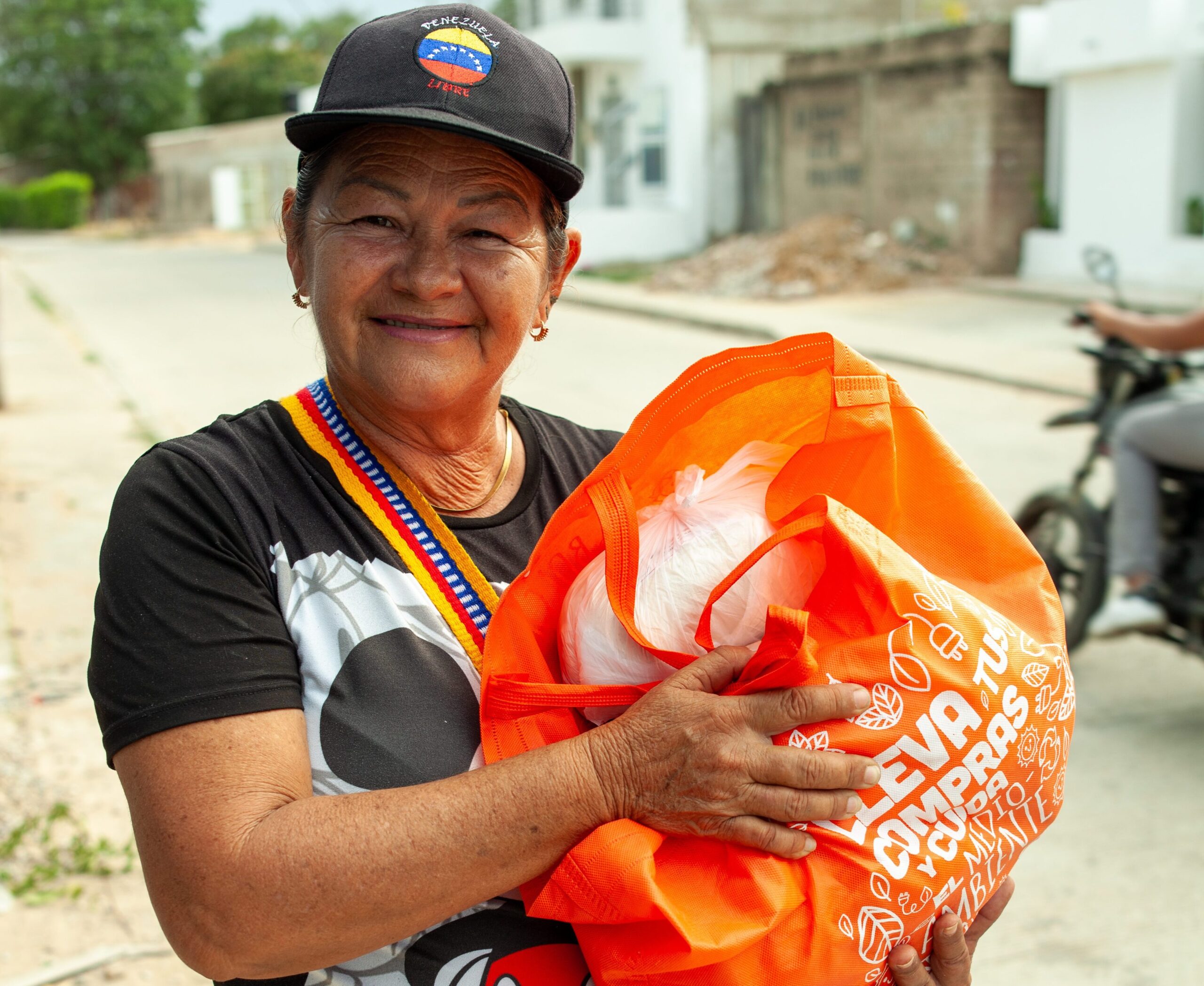
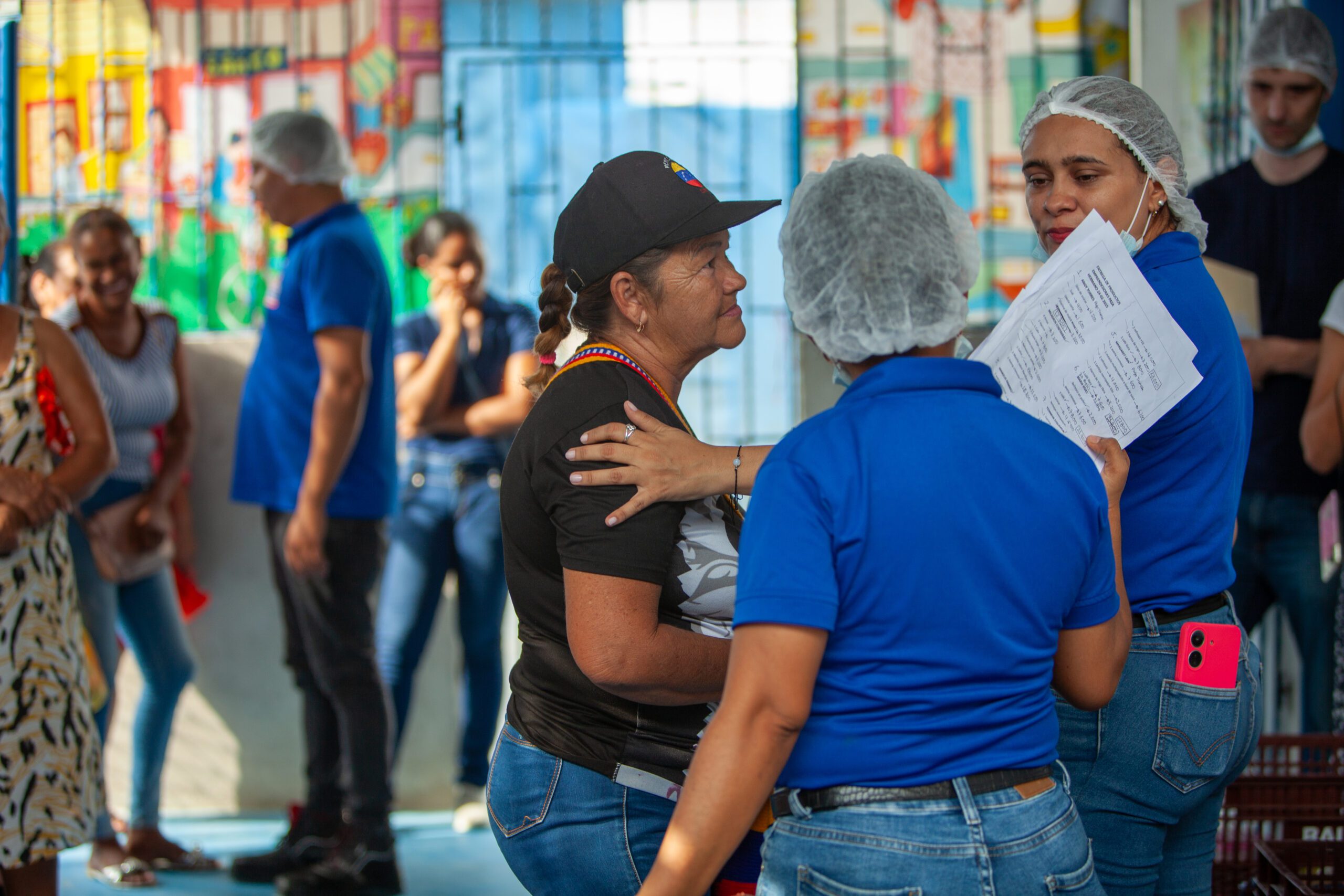
Contreras fled Venezuela with her entire family — her husband, four children and seven grandchildren — five years ago as violence intensified. An estimated 3 million Venezuelans fleeing the political and economic crises have resettled in Colombia in recent years.
“It’s difficult to start again. Our Colombian brothers and sisters have welcomed us with open arms,” she said.
Approximately 150,000 live in Colombia’s northern La Guajira state, which has some of the country’s highest rates of poverty and malnutrition. Venezuelans now make up about 15% of the state’s population.
One of the strongest centers for support has been La Guajira Food Bank, which has a variety of programs to support migrants, which they call Pasa Hermano (“Come In, Brother/Sister”).
“Most arrive here with nowhere to go, no way to earn a dignified living, and that means they often suffer food insecurity,” says Rebecca Badillo Jimenez, executive director of the food bank. “This is why they are a priority population for us, so they can have more economic opportunities and food assistance when they need it.”
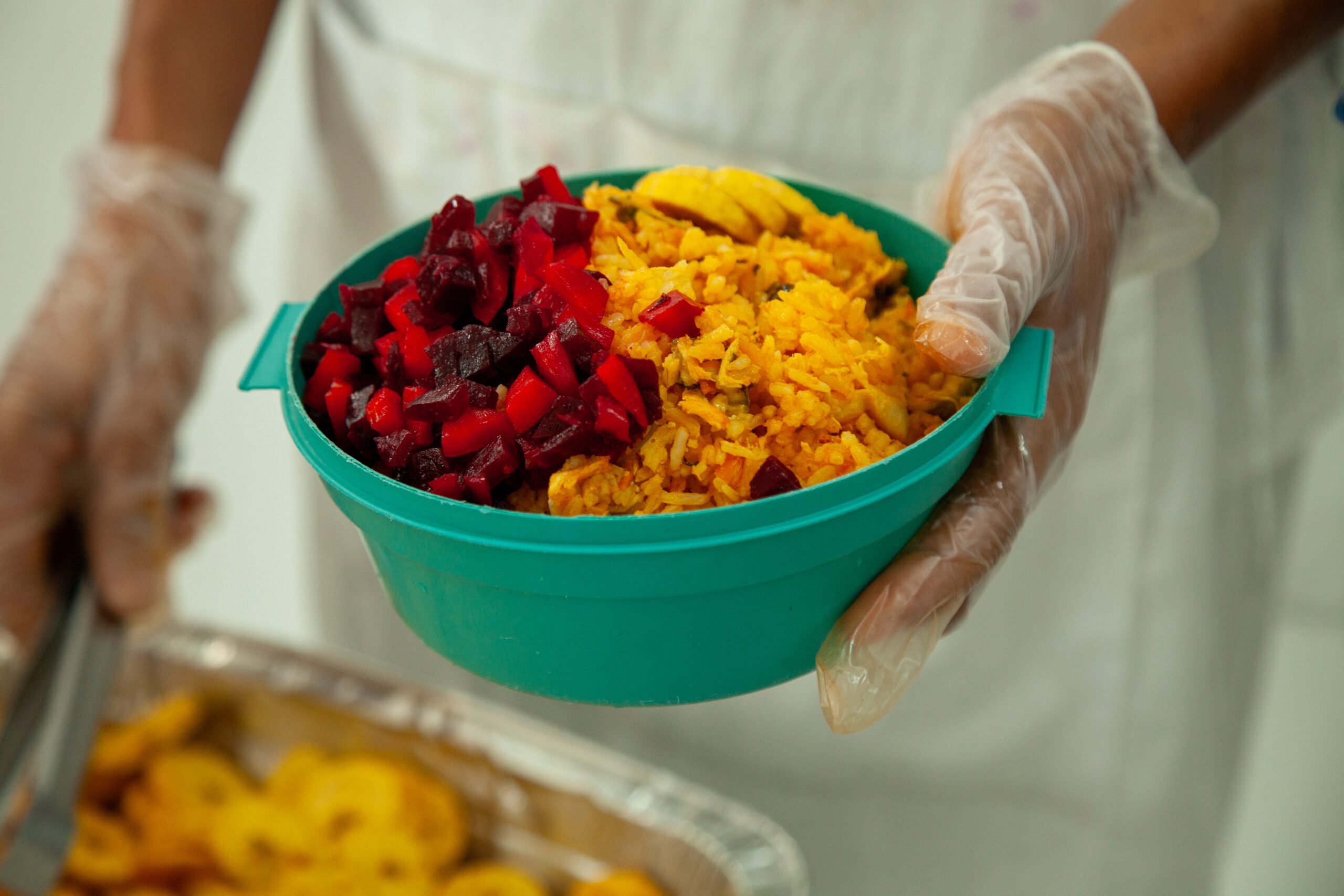
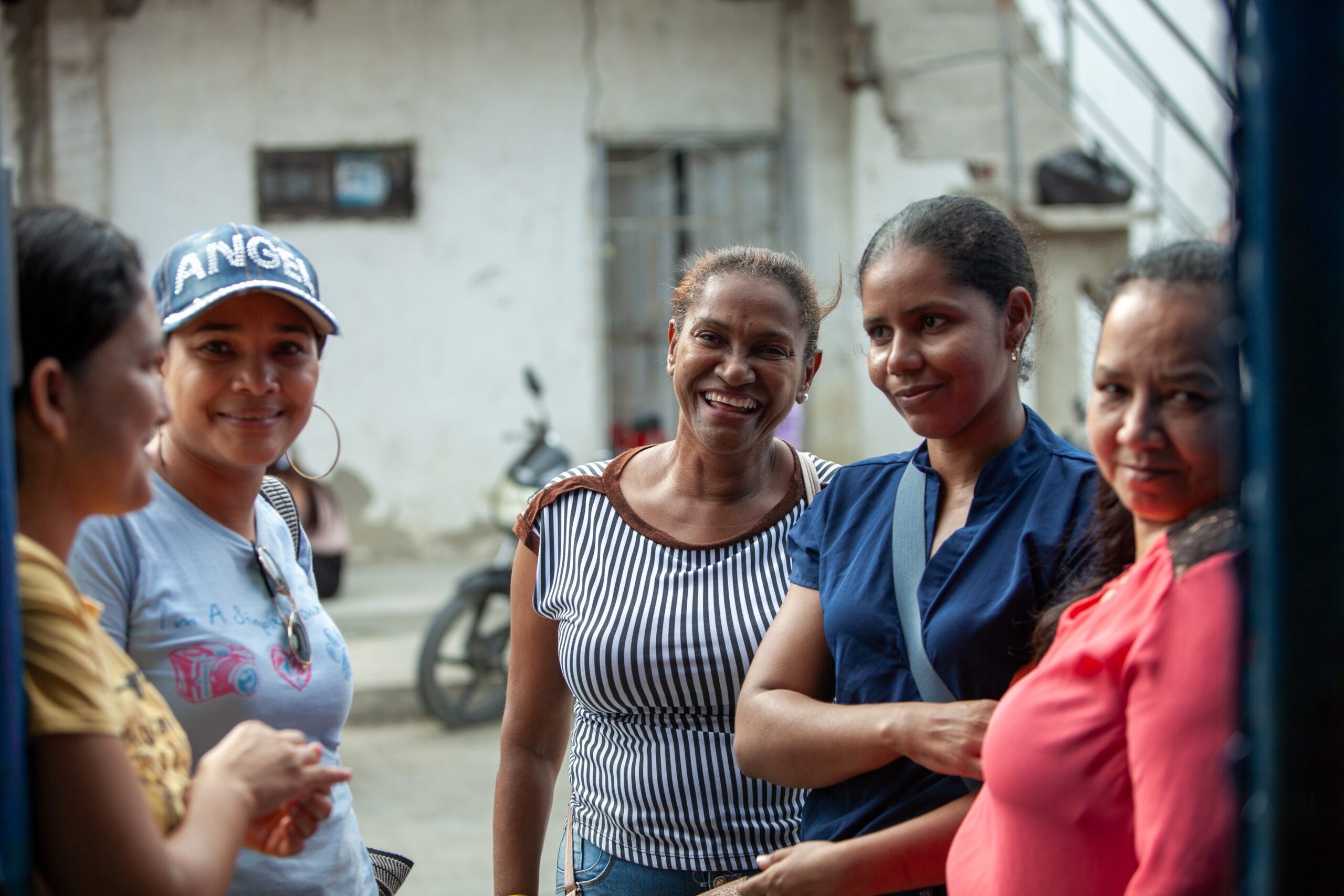

Since 2019, La Guajira Food Bank has partnered with other migrant community service organizations and migrant leaders to identify and address needs. They serve nutritious boxed lunches from the food bank to migrants daily. They also deliver meals to local organizations and businesses where Venezuelans are common, in particular a local recycling company, where almost all the waste collectors are Venezuelan migrants. About two years ago, they launched a program to deliver ingredients to Venezuelan entrepreneurs like Contreras who run restaurants or businesses out of their home, a very common way for women to make an income.
Eriana Rondon, also waiting for her weekly food basket, is a leader among Venezuelan migrants in Riohacha and helped many of the other women here register for the program.
“I lived on the streets when I first got here,” says Rondon, who fled Venezuela because of threats for her political affiliation. “I cut and sold my hair. I collected trash. I did whatever I could to make a peso.”
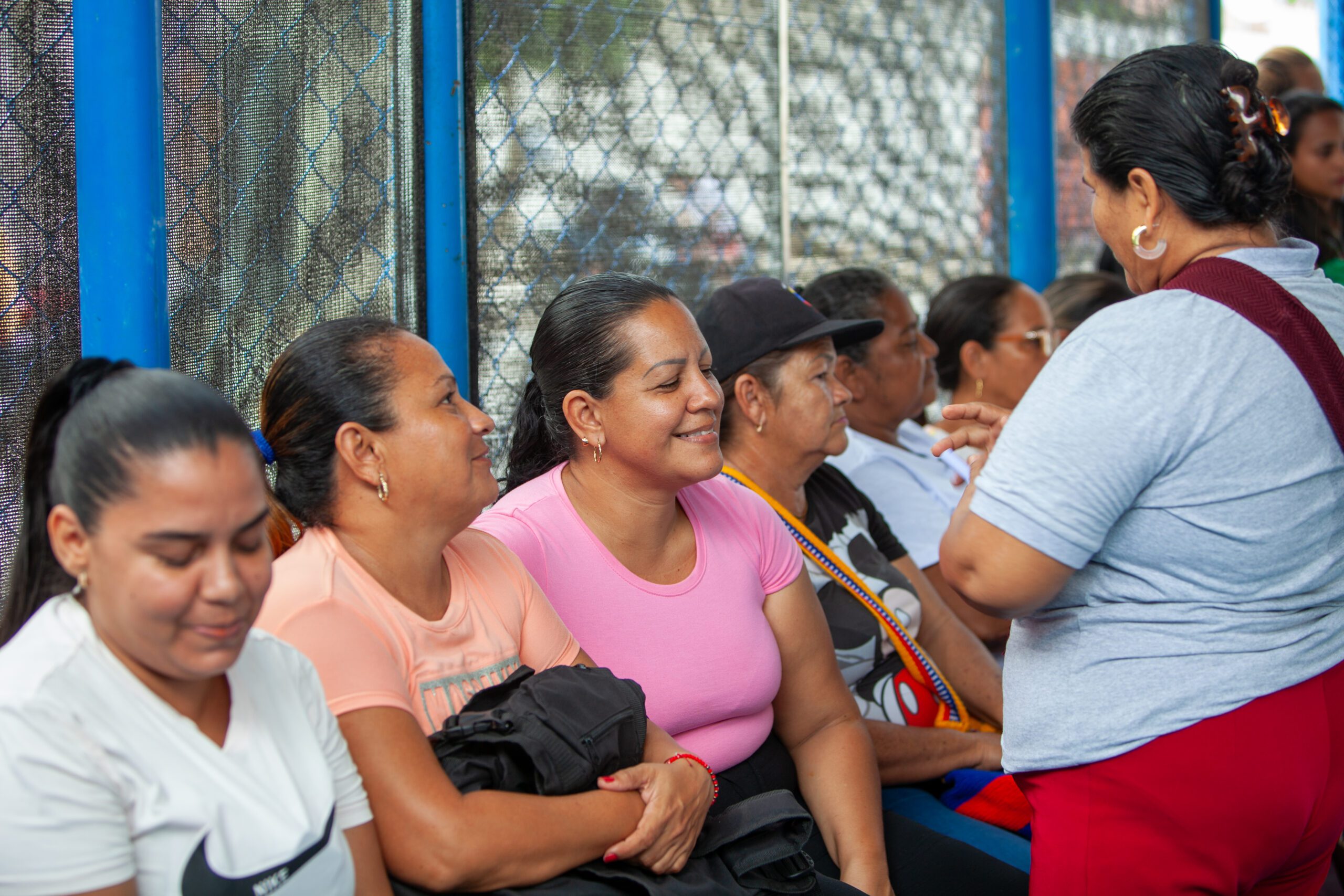
She has since found relative stability and become a leader helping organize resources and support for other Venezuelan migrants. She and her husband, a trained chef, also prepare food in their home.
“Sometimes we sell the food we prepare for income but, because the food bank donates the ingredients, I mostly donate what I prepare to people in my neighborhood who need the help,” says Rondon.
At a separate entrance to the food bank, other Venezuelans line up to collect 100 boxed lunches — known as corrientazos — served daily. Leonor Perez packs up several large Tupperwares for her family and neighbors.
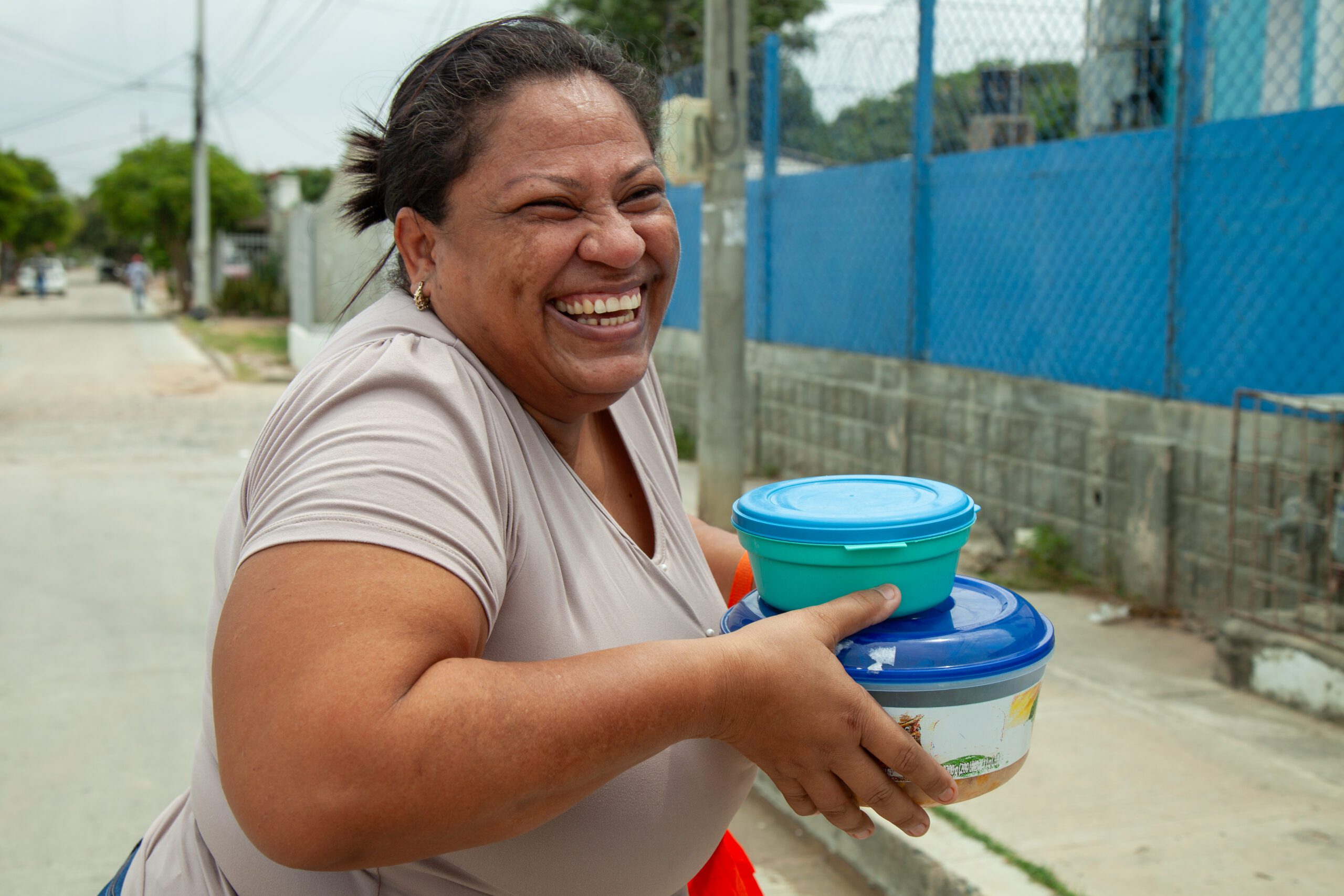
“This is the most affordable meal around. The ingredients are really high quality and are better than what we can afford at home,” she says. “We share whatever is left over with neighbors, but I always wish there was more because there is a lot of need [among other Venezuelans].”
Rondon, the migrant leader, says the food banks support has multiplier effects among the Venezuelan community in La Guajira.
“The food bank helping us allows us to help others,” she smiles. “It has a big impact”
